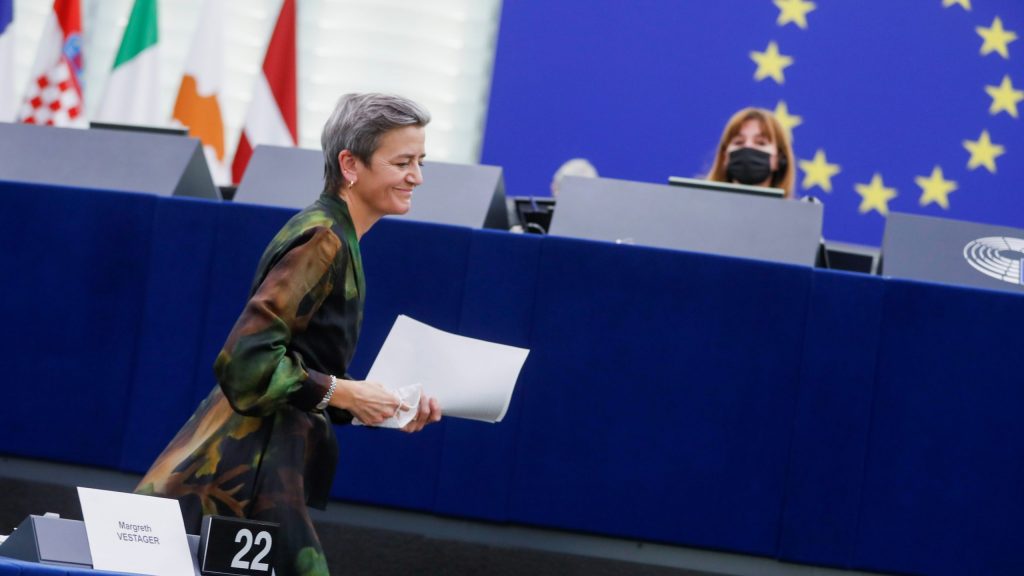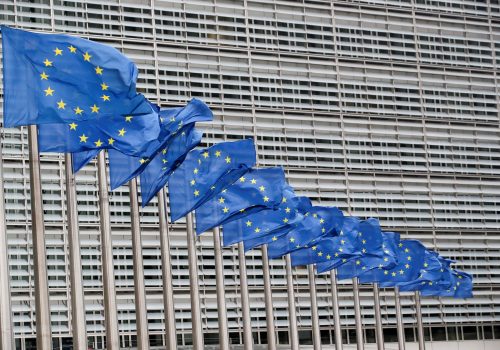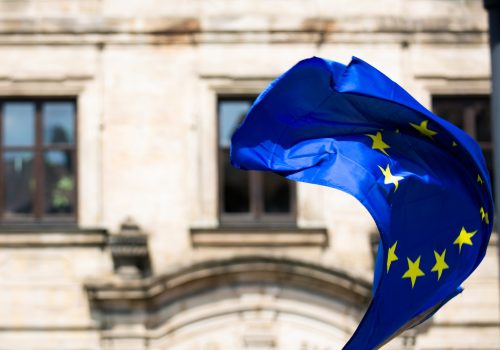“Open and fair markets are a shared objective across the Atlantic,” promised European Commission competition chief Margrethe Vestager in a speech last month to the US Chamber of Commerce. “I sense there is a strong convergence in the concerns we share.” Vestager’s optimistic comments shed a light on the numerous developments in the transatlantic antitrust space over the past year that have the potential to be far-reaching. And while approaches to enforcement may differ, officials on both sides of the ocean clearly agree it’s time to rein in Big Tech.
In the United States, the Biden administration has targeted Big Tech with a renewed emphasis on enforcement of current antitrust rules, while Congress has introduced several potentially significant antitrust reform bills aimed at providing enforcers with an updated toolkit for dealing with the challenges posed by the digital economy. In the European Union (EU), much of the focus has been on the landmark Digital Markets Act (DMA), which is meant to create fairer and more competitive digital markets by setting ex ante ground rules for the world’s largest tech companies.
As both sides seek to address difficult questions swirling around some of the world’s biggest companies, 2022 is shaping up to be another busy year for transatlantic tech antitrust regulation.
Legislative wrangling
In Europe, most of the early attention will be on “trilogues,” where the European Parliament (EP), European Council (Council), and the European Commission will attempt to reach an agreement on the final text of the DMA.
While they broadly agree on most of the legislative content, important issues remain to be settled—for example, on the definition of a “gatekeeper” within the context of the DMA. The proposal defines a gatekeeper as a company that operates a core platform service and possesses a significant and durable position on the EU’s internal market. The strength of a company’s position is determined by its revenue or market capitalization; whether the durability requirement has been satisfied depends on the number of years those thresholds have been met. Compared to the Council, the EP wants to increase the quantitative thresholds for individual companies, as well as expand the DMA’s exhaustive list of core platform services. It remains to be seen how quickly the parties can come to an agreement on these and other outstanding issues.
Now that it holds the EU’s rotating presidency, France will be in charge of driving the trilogues toward consensus. Adding both a wrinkle and urgency to these negotiations is the fact that France will also hold a presidential election in April, meaning that officials will try to move quickly to reach a deal on the DMA, at least in part for domestic political reasons. Vestager expressed her own sense of urgency, saying late last year that it’s better to pass “80 percent now than 100 percent never.” Foot-dragging runs the risk that corporate lobbying may upend key provisions of the draft legislation, or succeed in scrapping it altogether.
In fact, a potential compromise could be that a skinnier version of the DMA is agreed to, with the aim of bolstering relevant provisions post-adoption—similar to what was intended with the ePrivacy regulation with respect to the General Data Protection Regulation. And just as they did with the ePrivacy regulation, lobbyists from various sectors will undoubtedly target the DMA during the trilogues. That said, it would be very surprising if the DMA fails to pass during the first half of this year.
In the United States, the picture of what to expect is less clear. Despite a strong desire in the White House and various agencies to better enforce current antitrust rules, the ability of the Department of Justice (DOJ) and the Federal Trade Commission (FTC) to effect substantial change on their own is fairly limited, due to legal and institutional constraints. On the legislative front, it’s unclear what, if anything, will happen, especially since 2022 is also an election year in the United States.
Nevertheless, to understand what lies ahead for transatlantic digital competition, it’s important to understand the different antitrust frameworks that underpin the larger debate in the EU and United States.
Two roads diverge
While there is a fair amount of overlap in the antitrust approaches of the United States and the European Union, there are also significant differences. To understand these differences, it is helpful to distinguish between substantive (legal) and institutional issues—and to recognize the diverging ideas about the role of government in antitrust enforcement that underpin the entire enterprise.
As far as the substantive antitrust rules, there is broad overlap. For example, authorities on both sides of the Atlantic tend to fall in line with one another when evaluating proposed mergers. If something is deemed unacceptable commercial behavior in the United States, it is generally also considered out of bounds in Europe (and vice versa). But when it comes to single-firm conduct―particularly relevant in the context of Big Tech―there are notable differences. Historically, the EU Commission and some EU member states have been much more aggressive in finding “abuse of dominance” than the DOJ or the FTC in their pursuit of “unlawful monopolizations,” likely because the market-share thresholds required to establish dominance under EU law are significantly lower than under US law. And once a company is found to have a dominant position, the European Court of Justice has held that it has a “special responsibility” to preserve competition in that market. No similar obligation exits in the United States.
The biggest difference, however, is the way in which individual cases are examined and adjudicated. In the United States, federal antitrust enforcers at the DOJ and the FTC lack the authority to decide cases independently. If, after an investigation, the DOJ determines that there has been an antitrust violation, its only option is to bring a civil lawsuit against the offending party in federal district court. In addition to going to district court, the FTC also has the option of pursuing the matter before an administrative law judge; but in either case, the FTC, like the DOJ, merely acts as a prosecutor.
In the European Union, the entire process―from initial investigation through final adjudication, including the imposition of sometimes heavy fines―is conducted by and within the EU Commission. This setup has led some in the United States to raise concerns about due process. While the Commission’s powers are more far-reaching than those enjoyed by either the DOJ or the FTC, any concerns about a lack of due process are, according to EU law experts, misplaced. Besides reflecting the administrative-type enforcement systems found in most EU member states, it’s simply an example of how legal systems on continental Europe differ from that of the United States. Also, any party that gets an adverse decision from the Commission has an absolute right of appeal to EU courts.
The DMA would allow EU competition enforcers to regulate the behavior of dominant digital platforms (the aforementioned gatekeepers) ex ante, meaning it would allow them to set general guidelines for what those companies can or cannot do rather than rely on ex post competition enforcement (which is what the current rules allow). This would require companies that satisfy the gatekeeper definition to follow a list of guidelines or incur penalties for non-compliance.
The question of what can be done in the United States is more complicated than in the EU. In addition to US antitrust authorities being institutionally more limited than their EU counterparts in their enforcement actions, US antitrust law (and its enforcement) is controlled by the consumer welfare standard—which means it focuses almost exclusively on whether alleged anti-competitive behavior harms the interests of consumers. The focus of EU competition law is much broader, and therefore as a baseline proposition allows for greater flexibility in exploring novel approaches to new challenges. The bills currently pending in Congress would tread new ground, but if consumer harm remains the sole legal standard, the focus of US antitrust law would remain the same.
In sum, there is a strong desire to curb the market power of Big Tech on both sides of the Atlantic. Given the EU’s comparatively advanced legislative progress, together with the political imperative of getting something done, it’s highly likely the DMA will be passed this year―thereby strengthening the EU Commission’s ability to constrain the alleged anticompetitive behavior of the largest tech companies. But the fate of the various bills pending before the US Congress remains an open question. The year ahead will be revealing about whether shared transatlantic values on Big Tech lead to shared policy.
Morten Skroejer is a nonresident senior fellow at the Atlantic Council and former counselor to Denmark’s ambassador to the United States.
Nicole Lawler is a former Young Global Professional at the Atlantic Council.
Further reading
Fri, Sep 24, 2021
The US-EU Trade and Technology Council: Seven steps toward success
New Atlanticist By Frances Burwell
Officials should leave the first formal TTC meeting enthusiastic about the work to be done.
Wed, Dec 8, 2021
Europe in a bipolar tech world
Report By
With no sign of Beijing backing down, the US administration lays out a strategy for restructuring NATO to be targeted on Russia and China, combining its allies from Asia and Europe into an enlarged, redefined alliance.
Mon, Jan 10, 2022
Intel CEO: Expect semiconductor shortages into 2023
New Atlanticist By
This year “will remain a year of very constrained supply chains,” Intel CEO Patrick Gelsinger said at the Atlantic Council, and “we expect the shortages to continue into 2023.”
Image: EU Commission Executive Vice-President Margrethe Vestager walks during a debate on the Digital Markets Act (DMA) at the European Parliament in Strasbourg, France December 14, 2021. Photo by Jean-Francois Badias/Pool via Reuters.


